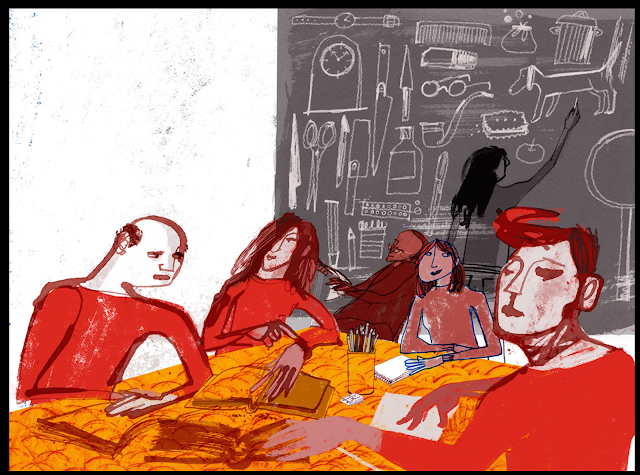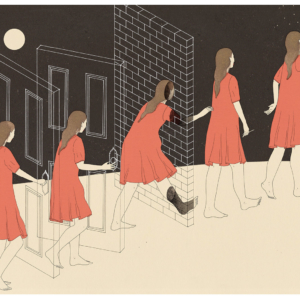IDEA PICTURES
Getting
started:
The initial
hard copy zine was a useful place to experiment with ideas and mediums to see
which communicated well and to select a limited number of key ideas. This
zine was a developmental sketchbook of collage, rather than a coherent product.
Despite
this I struggled, as usual, with starting the editorials. I find it difficult
initially turning the research and words into imagery. I experience brain
overload and panic. I overcame this by forcing myself to draw, even if the
sketches were ones I didn’t like, every day. This allowed me to develop an idea
by drawing and re-drawing, tweaking each time. I found the character design module
last year really hard and realized that was what I was now involved in. It was
quite scary doing pieces that are as simple as these; not full bleed or busy. I
am glad that I challenged myself to pursue this as I want to develop simplification
in my practice.
The
messages:
I tried
to ensure that the body language of the fruit-women portrayed feeling
uncomfortable, confined, squashed, trapped and pregnant. The designs were
deeply led by my research; there was reasoning behind my decisions. Quotes and
themes directly inspired the images and I just needed to work out how to
portray this through media.
I tried
to create a balance of light and dark as, per image, I decided to focus on one
colour. I like how the trapped element can be emphasized through sewing, an
intrusive technique, which goes all the way through the paper. Compositionally
I also wanted to fill the content to the size of the boxes even though I chose
to leave them as vignettes.
I chose
the different fruits to reflect societal roles portrayed in the Handmaids Tale:
- Pears (Marthas
who work in the kitchen); less sought after fruits, household objects,
dull colour
- Cherries
(Handmaids); sexual connotation ‘pop your cherry’, desired, a treat, come
in pairs, bright red
- Prune (Lady of
House); old prune, dried up grape, unattractive, changed purpose, dull
colour
In
conclusion:
I feel like
the results effectively communicate the theme of women being trapped in the
role of reproduction as in Atwood's literature. These offered a lighter, less
dark response to the zine produced later. The fruit-women are accessible, possibly
being able to be held and therefore show my warm response as a woman to their
situations.















